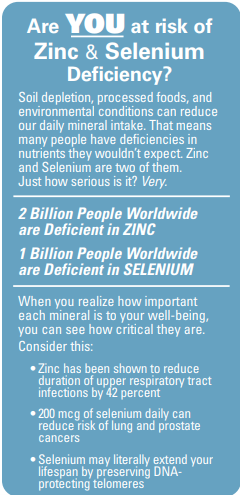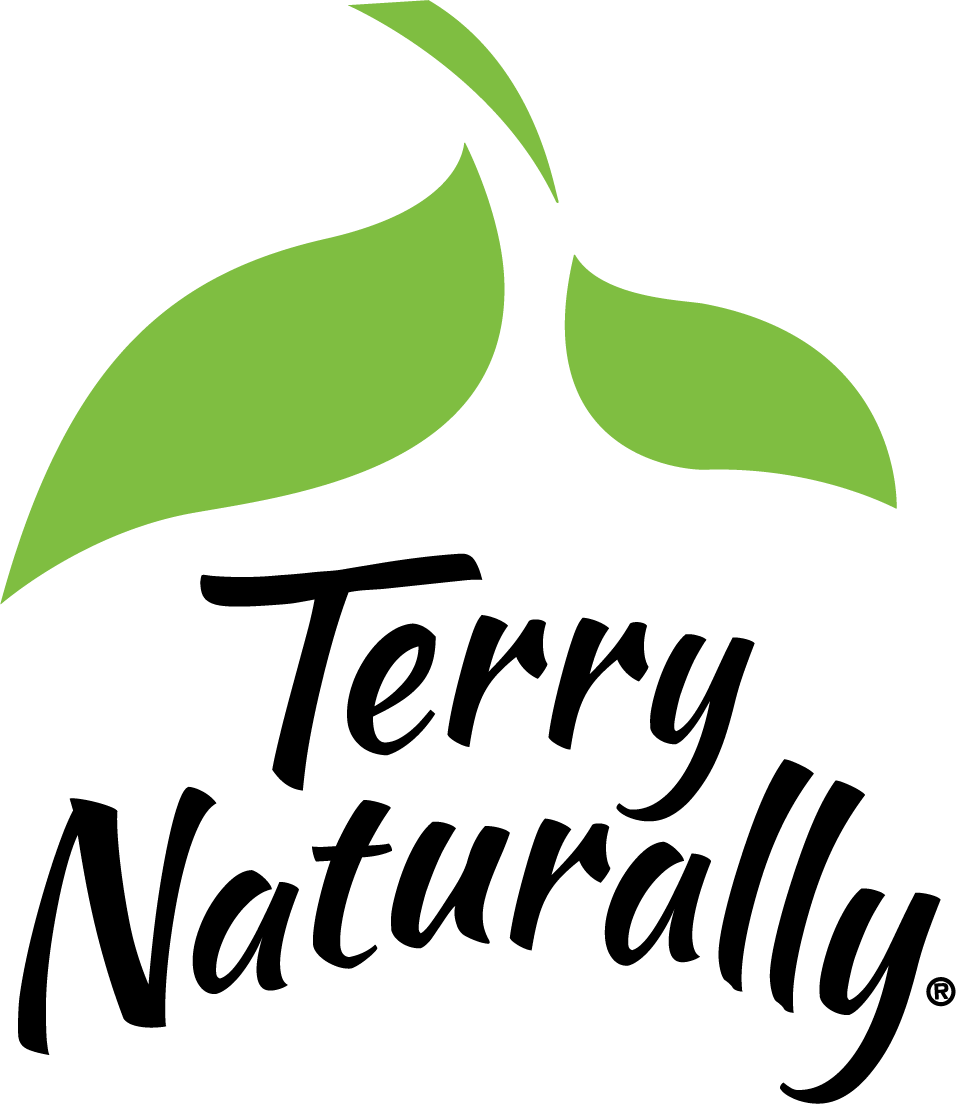While just about everyone knows the names of most minerals, it’s not always possible to get these nutrients in our diet. Depletion from the soil and food processing means minerals that were once common in most foods may be lacking in modern diets.
Zinc and selenium are two important minerals which are absolutely essential for a strong immune response, defense against tumors, and overall inflammation reduction and disease protection.
Zinc Fights Viruses and Bacteria
Zinc is one of the most important minerals you can get in your regimen every day. It is key to at least 300 different enzymatic reactions in the body and is an absolute must for a strong immune system.
Zinc is a requirement for T-lymphocyte (white blood cell) activity that fights bacterial and viral threats. It also acts as a messenger, relaying frontline updates about these threats between your innate and adaptive immune systems so they can kick into gear to stop a familiar illness or adapt to stop novel viruses you’ve never encountered in the past.
Zinc stops viruses from replicating because it halts the proteins in those viruses from using the host’s own cells to create more copies of itself. Because of this, zinc can have a noticeable effect on reducing cold and flu symptoms.
Researchers who pooled the results of three clinical studies found zinc reduced the duration of cold symptoms by 42 percent compared to a placebo. But the timing of zinc is critical. These same researchers noted taking zinc at the first sign of symptoms is what accounts for results within the first 24 hours.
The Synergy of Zinc and Selenium Together
Research indicates that zinc works synergistically with selenium in the immune system. A lack of either mineral can lead to increased oxidative stress, more inflammation, and out of balance CD4/CD8 lymphocyte ratios—contributing factors to the cytokine storms so prevalent in serious COVID-19 cases. Without these minerals, you may be much more prone to dealing with respiratory issues.
For example, selenium and zinc levels tend to be lower in cases of asthma. Clinical research has shown that these deficiencies ramp up C-reactive protein levels, create an imbalance of lymphocytes, lower levels of antioxidant enzyme activity (like glutathione), and simply reduce your ability to breathe easily.
Selenium restores antioxidant capacity in the lungs, and moderates inflammation in the lungs through interleukin-1-beta (IL-1B) and interleukin-6 (IL-6) pathways, providing a measured immune response. I think this is a key point for anybody who deals with allergies, asthma, or other conditions where an immune response that is too intense could be a liability rather than a comfort.
Selenium can also be used as an add-on therapy for treating viral and bacterial infections, because it fights influenza-A (a common flu) and appears to stop (or at least slow down) more contagious viruses as well.

As with zinc, a selenium deficiency puts your health at risk. Research from the University of Chapel Hill in North Carolina shows selenium deficiencies can make individuals more susceptible to viral variants, because their cells just can’t withstand the attack. So, even though someone might recover from one virus, if a variant comes along fast enough, they may not have the reserved strength to fight it effectively.
Tumor Reduction and Cancer Prevention
Some of the same anti-inflammatory and antioxidant attributes that make zinc and selenium so powerful for immune defense also make them effective for tumor reduction and cancer prevention.
But zinc is not readily available for the body to pull from reserves when it is needed, and what zinc we may have on board is often depleted quickly due to stress, injuries, infections, or simply normal immune-protective activity.
This may be why deficiencies of zinc are reported in cases of lung and breast cancers—there simply isn’t enough zinc on board to stop these conditions from starting in the first place.
Zinc is critical for proper cell division and differentiation, DNA and RNA repair, and the strength and stability of your cells. Zinc reduces the risk of tumor development because it balances the ratio of T-helper cells—the same cells that protect you from viruses—and it stimulates the release of interferon gamma (INF-y), a cytokine that kills cancer cells and stops the spread of tumors.
Selenium deficiencies are a definite risk factor for cancer. In addition to strengthening your immune defenses, selenoproteins from selenium protect you from tumors by interrupting flawed DNA replication that would otherwise be the starting signal for cancer growth.
Findings originally reported in the Journal of the American Medical Association showed that 200 mcg of supplemental selenium daily significantly reduces the incidence of lung and prostate cancers, especially in individuals who were deficient in the mineral.

Zinc and Selenium Reduce Inflammation
Zinc and selenium also inhibit inflammation, help wounds heal faster, and may be a key factor in reducing the pain of chronic joint conditions. Deficiencies of zinc can make rheumatoid arthritis symptoms even more severe.
For cuts, abrasions, and other injuries, zinc helps repair tissues at a molecular level. Within the first 24 hours of an injury, zinc levels increase up to 20 percent in the immediate area surrounding a wound. As the tissues actively heal, that level bumps up to 30 percent.
Selenium also helps tissues heal faster, because one of the mineral’s major components, glutathione peroxidase, inhibits oxidation at the site of inflammatory injury and prevents damage to mitochondrial DNA.
Selenium may also inhibit aging because it preserves the length of telomeres, the protective protein structures found at the ends of each chromosome. Telomere length is a kind of natural calendar; each time a cell divides, it gets slightly shorter. And ultimately, that comes with a price—older individuals with greatly shortened telomere length may have three times greater risk of dying from heart disease, and eight times increased risk of mortality from infectious diseases.
